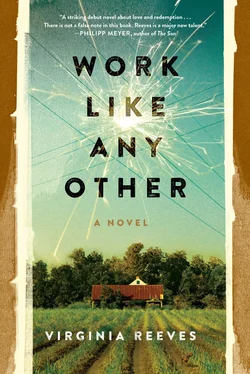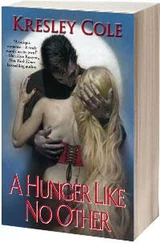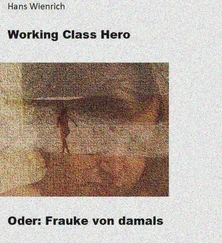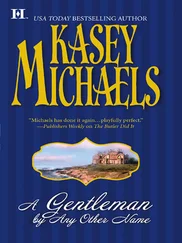In the summer, they can run fans that flush the house with fresh air, but even though the guards have to suffer the heat and stink, too, those fans are one of their favorite things to withhold. Someone takes that fork from the mess, and we spend a day sweating ourselves out of our skin until it’s found.
“Fork coming down,” someone will shout from up top, and we’ll listen to those tines hit the metal grates in the open floors, chiming their way to a sticking point, footsteps, and then the creak of belts and holsters as guards bend down. That fork will play its way along whatever row of bars it’s near, and Beau or Henry or Stanley will say, “You boys hear that? That’s a pretty noise, ain’t it? Let’s listen on it a while longer.”
The fans are loud.
The guard towers are made of the same concrete aggregate as the wall, the same sand and gravel from the prison’s own pit. The towers are on every corner, and they’re lonely looking things, barely higher than the wall itself, slits for windows. The one out front is something else, though. A hexagon with a cement base and brick sides, its top stacked full of beautiful paned windows. The roof is a great turret, and the spotlight perched in its tower is more the beacon of a lighthouse than the glow of escape. I can see it from my cell.
“Why’s the front tower look like a lighthouse?” I’ve asked.
“When have you ever seen a lighthouse?” the guard or foreman responds. “Get on back to your work.”
The oaks in the grove across the highway are southern red oaks. Many of them were cut down to build the prison village, which stands just beyond the gravel pit. A community hall is over there in the village, and a hotel for the single employees. It sounds like our village at Lock 12, just drier without the Coosa flowing by.
The coffee here is stretched and weakened by ground acorns from the oaks. Even better than tarring the walls is gathering acorns. Few men get that job. They are short-timers with no risk of flight. Before anyone can resent them, they’re gone.
Today is Sunday, and I am in church, sitting next to Ed. We share a cell, Ed and I, along with four other men, and he’s the only person in here I’d call a friend. Ed Mason. He’s a cabinetmaker by trade and a burglar by profession, serving a ten-year sentence for grand larceny. He got here ten months before me, right after Kilby first opened, and they assigned him to the woodshop, where he makes picture frames and cradles and baskets. The prison sells his work, and it does me some good thinking about those mothers settling their infants into one of Ed’s cradles.
The warden came to him a few months ago, saying, “You think you could make us a certain type of chair, Ed? Following these designs?” The warden handed them over.
“This the kind of chair I think it is?”
Relaying it back, Ed said, “And you know what he told me? Bastard said, ‘You’re not making it for yourself, Mason.’ ”
Which is true. Ed’s done nothing to earn him that seat, so when the warden was willing to throw in a month’s furlough, Ed said all right. A month is a long time, and Ed’s from London. He’s confused as anyone as to how he got to Mobile, and then to Kilby. He’s been looking for a way out since he arrived, and the warden gave him one.
The prison chapel is simple, like the one I occasionally attended with Marie and Gerald, and were it not for the men around me, I might well be in the same place. The windows are tall, but not colored, and the pews are plain pine, like the pulpit and the cross.
Today, Chaplain reads from Genesis. He reads to us about Joseph, which he does often. Why Joseph is our man, none of us know.
Chaplain doesn’t mention Jennings, though his death is still fresh.
Because I am literate, Chaplain has made me one of his readers. At mealtimes, he stations a reader at each end of the long tables in the mess, a Bible in our hands. We must read at the start of dinner for five full minutes while the men wait with their food in front of them. It is the worst of the jobs I’ve received.
“You think Chaplain’s getting any?” Ed whispers to me.
I shake my head.
“He’s allowed to, isn’t he?”
I nod.
“Not like them priests, who’ve got to hold out their whole lives. God’d have to promise a hell of a lot to get me to swear off that treat.” I nod again. “That furlough is close. Going to find me a woman straightaway.”
“Raise up your voices, brothers,” Chaplain is shouting. It’s the Lord’s Prayer we’re raising, and the men around me shout it loud. Ed stops his whispering.
“As though any woman would have you,” I say, the voices draining off around us. “We ask in Jesus’s name.”
“I’m not above praying, brother.”
Ed has told me that he doesn’t plan to return. “You have the date set?”
“Nah. They have to be sure they don’t need me anymore first. They’re giving me a month, Ross. A month. Even Taylor’s dogs couldn’t catch a trail that cold.”
The desire to run is something deep, I think. We had this boy Oscar — just a kid, really, barely eighteen — who’d drawn a four-week sentence. Some misdemeanor, we didn’t know what. We’d had a recent opening in our cell, and they stuck him in with Ed and me and the others.
“I got a holdover,” he told us. “They’re going to come back with something that’ll keep me here forever.”
“Wait,” we told him. Holdovers pan out, or they don’t. Lots of times those other charges don’t have legs. They don’t stand up. But other times, they try you all over and give you everything they can, start you from scratch. It can go either way.
Being such a low-threat case, they sent Oscar over to the farm. He ran his first day. The dogs came back tired, Taylor saddle sore. Folks say Taylor puts the same effort into every escape, murderer or vagrant. Escaping is about pride, not sentence. A man walks off before he’s done, it reflects badly on his overseer.
Six months went by after Oscar ran, and we forgot about him. Someone else took his bunk. Someone else took his job. Someone else was younger. And then — one day — Oscar came back. He walked right up to the front doors, saying, “I heard I don’t have a holdover, so I thought I’d finish out my time.”
The State doesn’t have a sentence for escape, not anything official, so Oscar finished his sentence — those few weeks — and he walked out a free man.
“Why’d you come back?” Ed asked him in the mess.
Oscar was a funny-looking kid, big teeth and a tall forehead, hair that stood straight up, a big old birthmark down the right side of his jaw and neck. You could pick him out of a crowd.
“You ever tried being an outlaw?”
I laughed, but Ed said, “I’d take outlaw any day.”
In church, Ed says, “They give me that furlough and I’m gone.” The men around stand from their pews, tired already by the jobs they’ll return to. Chapel is full because it gives us a break from work, a spot to sit down. An hour of rest can make a believer out of any man.
“Your sentence is too long for them to forget,” I tell Ed. I am embarrassed by the resentment in my voice, the envy I feel not just of my friend’s furlough, but the work that’s bought it. If they’d come to me with the wiring for the chair, I would eagerly have said yes.
They didn’t come to me.
“You’ll be all right, Ross,” Ed is saying. We’re standing, too. He’ll go to the woodshop, and I’ll go to the barn. “Early parole. I know it.”
I shake my head.
“We’re not the ones they’re after.”
But he’s wrong there. We’re exactly what Kilby wants. These prison guards can’t do anything but shout and whip and run dogs. They don’t know wire or wood. They’re not skilled. They couldn’t dig a stump out of the ground or sow a row of corn seed. They couldn’t get the current going back through those strands of barbed wire along the wall should someone cut them. They couldn’t build Ed’s chair.
Читать дальше












